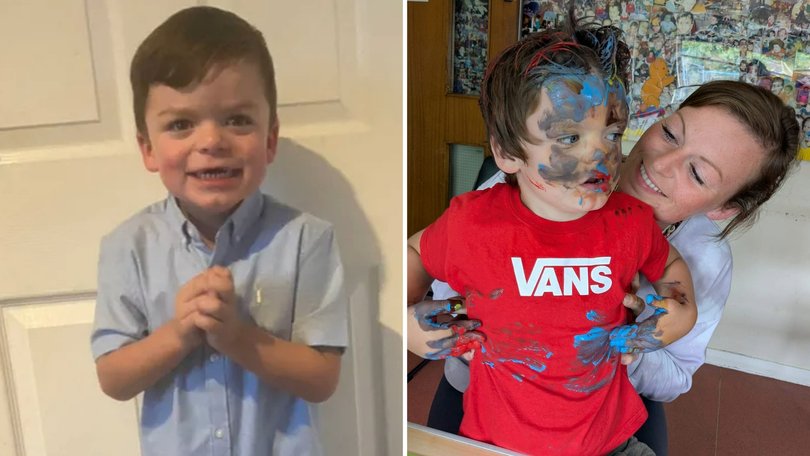Tate McDaid: Four-year-old boy with rare childhood dementia in urgent race for clinical trial in Swansea
A mother is urgently seeking a clinical trial to slow the progression of her four-year-old son’s rare form of childhood dementia as his condition rapidly advances.

A mother in the UK is racing to secure a place in a clinical trial that could give her four-year-old son a chance to slow the devastating progression of his rare neurological disorder.
Tammy McDaid said the next 12 months will be crucial for her con, Tate, as the signs of his condition begin to accelerate.
“The next year is quite critical in Tate’s life as it’s around now that things start to show,” she told the BBC.
Sign up to The Nightly's newsletters.
Get the first look at the digital newspaper, curated daily stories and breaking headlines delivered to your inbox.
By continuing you agree to our Terms and Privacy Policy.Tate was first diagnosed with autism at age 2, but as Ms McDaid, who is from Swansea in Wales, recalled, “Deep down I always suspected there was something more.”
The fear became real in March 2024 when an MRI revealed changes in Tate’s brain linked to dementia-like deterioration. Additional tests confirmed he had Sanfilippo Syndrome, a genetic disease that attacks the central nervous system and leads to a steady decline in cognitive, behavioural and physical abilities.
The Cleveland Clinic describes the disorder as one that “leads to premature death,” with no cure and only symptom management available.
Tate has type A, the most aggressive form, and children with this subtype typically live between 11 and 19 years. Ms McDaid wrote on a GoFundMe page created to support his care that the diagnosis shattered hopes she’d quietly held onto.
“My little boy has never spoken a word, and now I know I will never get to hear his voice,” she said.

The funds she’s raising will go toward pursuing treatment trials overseas.
“These potential trials or therapies could give him more time being mobile & eating food! More days filled with climbing, running, and me living on edge to see where he will escape to next! - but they will be extremely expensive,” she wrote.
“If there’s any chance to help him, I have to take it”, Ms McDaid added.
While fully aware that no cure exists, Ms McDaid hopes that medical intervention could buy time before Tate begind to lose the abilities that currently bring him joy.
“Slow down the regression of Tate’s mobility, as that is what is going to hit me the hardest”, she told the BBC.
“He could climb before he could walk. I just want him to be able to do this for as long as possible.”
Despite everything, she says he is the light of her life.
“I am so blessed and proud of him. Even though he can’t talk, he hugs and kisses me.”
